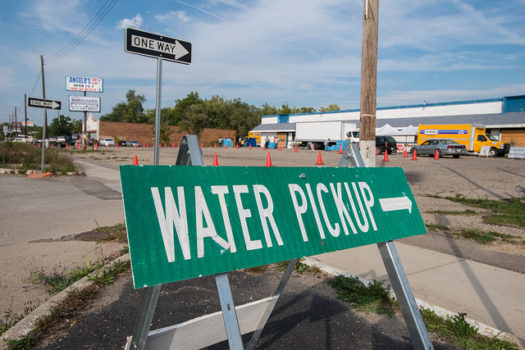
March 28, 2017; National Public Radio, “The Two-Way”
A suit against the state of Michigan brought by Flint resident Melissa Mays and three nonprofit groups was settled yesterday for $97 million to be spent, among other things, on new water service lines to replace those that have been leaching lead into the city’s water. The water lines for 18,000 households will be examined for possible replacement.
“This is the first little battle won in this huge overall war,” Mays told NPR’s Ari Shapiro. “For the first time, we’ve been able to have a federal court enforce the state to do the right thing, which is to replace the pipes that their agencies and their administration broke. And now people can start to see progress.”
Sign up for our free newsletters
Subscribe to NPQ's newsletters to have our top stories delivered directly to your inbox.
By signing up, you agree to our privacy policy and terms of use, and to receive messages from NPQ and our partners.
Mays and three nonprofits—Concerned Pastors for Social Action, the Natural Resources Defense Council, and the American Civil Liberties Union of Michigan—filed the lawsuit more than a year ago. A mediator has been working with the case since December and passed along his recommendations to U.S. District Judge David Lawson, who made a final ruling yesterday.
The settlement requires the state to continue to operate nine bottled water and filter distribution centers through September 1st, with clearly designated procedures for closing any of them. It also mandates expanded Medicaid services to cover such programs as monitoring the blood of local children for elevated lead levels. More details are available in this Detroit Free Press report.
Flint, as we know, is not the only community with a poisoned water system, and Mays wants this lawsuit to be seen not only as a win for Flint residents but a model for others fighting for environmental justice. “This proves that even while poisoned, even while struggling for survival, that we’re not just victims; we are fighters. And we hope that we can lead a good example for the rest of the cities and states in this country facing this problem in a way that we can be proud of.”—Ruth McCambridge












